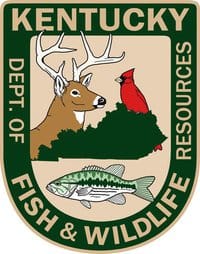Public Can Help Monitor the Health of Kentucky’s Deer Herd

Wildlife watchers can help researchers track and monitor the health of Kentucky’s deer herd.
“For years, the Southeastern Cooperative Wildlife Disease Study Group has tracked outbreaks of EHD – or epizootic hemorrhagic disease – in deer,” said Tina Brunjes, deer and elk program coordinator for the Kentucky Department of Fish and Wildlife Resources. “The public can assist researchers by reporting sick animals and pinpointing locations.”
Dr. Aaron Hecht, wildlife veterinarian for Kentucky Fish and Wildlife, noted that EHD has been observed annually in white-tailed deer across the southeastern United States since 1966. The disease can be fatal to deer.
“The EHD virus is transmitted by flies known as biting midges, and as a consequence, disease coincides to the presence of the competent vector,” Hecht said. “These viruses do not infect humans, and humans are not at risk by handling infected deer, eating venison from infected deer, or being bitten by infected by midges.”
Infected deer lose their appetites, drool excessively and lose their fear of humans. They may concentrate around farm ponds and water in an effort to reduce their body temperatures. During drought years, healthy and sick deer tend to congregate around the same watering areas, which can accelerate the transmission of the disease.
The onset of cooler temperatures in late fall usually brings a sudden end to disease outbreaks.
“We will monitor Kentucky’s deer herd closely over the next few months,” said Brunjes. “If we should start seeing cases of EHD in the field, we need people to let us know the location of sick animals so that we can take samples while the deer are alive.”
Samples taken from sick deer will assist the Southeastern Cooperative Wildlife Disease Study Group in its efforts.
People who see sickly deer around watering areas should report the animals to Kentucky Fish and Wildlife by calling 1-800-858-1549. Callers should be able to pinpoint the location of a sick animal. Observers may also e-mail reports to Kentucky Fish and Wildlife at: info.center@ky.gov.

